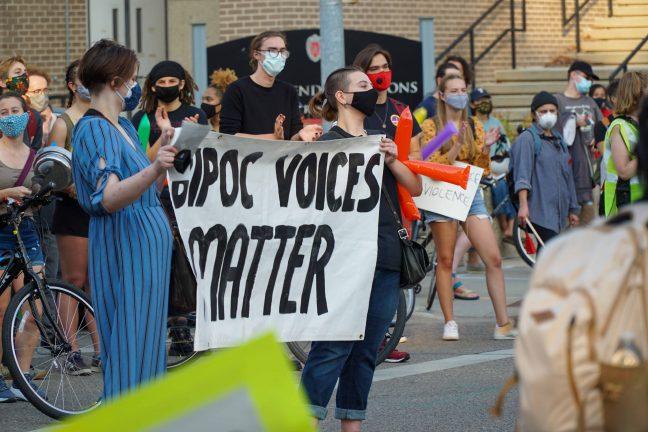The University of Wisconsin BIPOC Coalition explained their mission and engaged in conversations at their first public forum Wednesday night.
The UW BIPOC Coalition’s mission is to “build a unified community of BIPOC voices at the University of Wisconsin-Madison,” BIPOC Coalition co-founder Megan Spielbauer Sandate said.
“We want to really create that platform that we can all work together and create these initiatives that are really focused on structural changes and that ensure members and all BIPOC students and BIPOC folks on this campus are heard, recognized and respected,” Spielbauer Sandate said.
The purpose of the forum was to allow students and community members to voice their concerns and share how the BIPOC Coalition can best serve them in the upcoming spring semester, according to their organization’s Instagram.
As a relatively new group on campus, BIPOC Coalition co-founder Tarah Stangler said the organization is trying to gauge what students would like to see the group accomplish in upcoming semesters.
“We really want to create ourselves to be a strong coalition and answer those questions of what it looks like to have members join and if people need anything from us to be able to let us know,” Stangler said.
Co-founder Juliana Bennett said the biggest tool the BIPOC Coalition needs right now is support in amplifying the voices of BIPOC at meetings and forums. Bennett said students can also help the organization by spreading the word about events and projects on social media.
Student BIPOC activists let down by UW Chancellor’s response to demands
Co-founder Jordan Kennedy emphasized the importance of amplifying BIPOC voices.
“The more people that know what we do and care about it will lead to our push for [demands], the more leverage we have, the more power we have as a body overall,” Kennedy said. “So just continuing to get more people involved is another thing.”
Stangler added that getting responses and support for UW faculty and staff has helped them gain leverage for their demands.
The BIPOC Coalition also will work to build communications and relationships with other groups on campus in order to stay involved and represent a larger group of students, Kennedy said.
“We’re always trying to work with other groups, whether they’re just general student groups or especially groups that represent under-represented bodies around campus and trying to be involved with them and help close their initiatives and hear from them,” Kennedy said.
New MSC director strives for ‘best possible Wisconsin experience’ for students of color
Stangler said the BIPOC Coalition met with Chancellor Rebecca Blank for the first time this October to discuss changes that can be made on campus and what can be done to represent BIPOC students.
The BIPOC Coalition will continue to meet with the chancellor two times per semester plus emergency meetings. Stangler said “emergency meetings” will need to be more clearly defined by Blank in the future.
The organization will use the feedback given during the forum to plan over winter break how to address student and community needs in the spring semester.
“Thankfully we’re at a large university where we do have a large amount in comparison to other universities in the UW system of students of color, especially ones that are actively organizing,” Stangler said.













